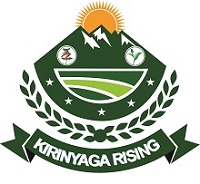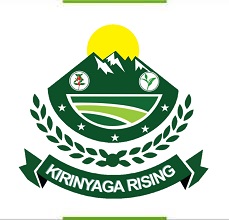Kirinyaga makes major step towards Rice Husk Factory launch
Kirinyaga County has made a major step in its plan to begin the conversion of rice husks into particle boards as an alternative to timber.
This follows an announcement by the County Governor Anne Waiguru on Monday after receiving the first prototype of particle boards from the National Environment Trust Fund (NETFUND) Kenya at her office in Kutus, Kirinyaga County on Monday.
“We have made a major step towards our plan to set up a Rice Husk factory in Kirinyaga which will not only ensure value addition, but also create employment for the locals, offer alternative income stream for farmers and help in environmental conservation,” she said. “This development is a culmination of a year-long process that began with our letter to NETFUND requesting research feasibility studies to determine the state and population of rice husks, the most viable technologies and probable end products, and the designs and costing for setting up a pilot plant in the county.”
The feasibility study carried out by NETFUND in partnership with Low Emission and Climate Resilient Development (LECRD) Project was carried out in the first quarter of 2019. The project seeks to convert rice husks, a by-product of rice, into particle boards that can be used to make furniture and as house construction material. The boards are considered cheaper and denser than the plywood and conventional wood and could offer a reprieve to industry players who are grappling with scarcity and high costs of timber resulting from a government ban on logging.
Presently, Kirinyaga County – ranked highest in rice production – produces over 8,500 tonnes of rice husks sold for a paltry Ksh1,350 for a 7-tonne lorry – equivalent to 350 bags of 40-45 kilograms.
“It was foresight for us because we began this process even before the ban on logging was imposed. We realised that as the largest rice producing county, we have tonnes of rice husks which can be processed to provide a cheaper and safer alternative to timber and ease the pressure on our forests while at the same time improving local economy,” Governor Waiguru said.
Currently, the rice husks are disposed through burning, dumping on the open fields or used as animal feeds and animal bedding posing a major threat to the environment, according to a report by NETFUND.
The Governor said that though her initial plan is to use the boards to construct furniture for Early Childhood Development Education (ECDE) centres, the project could be expanded into the production of material that could be used in the construction of affordable housing in line with President Uhuru Kenyatta’s Big 4 Agenda.



